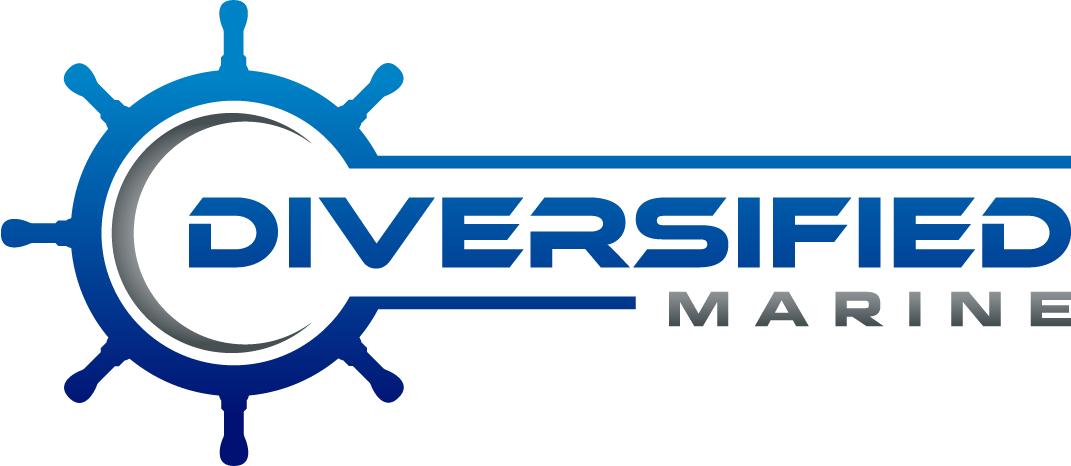Smart Maintenance: Cost-Effective Strategies for Research Marine Vessel Upkeep
- Diversified Marine
- Feb 28, 2025
- 4 min read

Research marine vessels are essential for exploration, scientific discovery, and environmental conservation. However, their upkeep requires a significant investment, both in terms of time and money. Improper maintenance can not only increase costs but also hinder productivity and compromise safety.
This blog will explore cost-effective strategies for maintaining research marine vessels. From understanding preventative maintenance to adopting emerging technologies and considering environmental impacts, these smart maintenance practices will ensure your vessel operates efficiently and sustainably for the long term.
The Importance of Smart Maintenance for Research Marine Vessels
Operating marine vessels comes with unique challenges, from unpredictable weather conditions to consistent wear and tear caused by harsh maritime environments. Neglecting maintenance can result in breakdowns, costly repairs, and even operational delays—hurdles that no vessel owner can afford.
Smart maintenance involves leveraging updated practices, technologies, and strategies to minimize downtime and operating costs while extending the lifespan of your vessel. Research marine vessels, given their specialized functionality, demand a proactive approach to ensure they can perform their missions effectively.
This guide lays out practical and cost-efficient methods to improve maintenance routines for research marine vessels. By the end, you’ll have actionable insights to enhance operational efficiency and reduce expenses.
Understanding Preventative Maintenance
What is Preventative Maintenance?
Preventative maintenance is a systematic approach to vessel care. Instead of waiting for issues to arise, preventative measures focus on routine inspections, preemptive repairs, and scheduled servicing to address potential problems before they escalate.
Why is Preventative Maintenance Crucial?
Minimizes Downtime
Addressing minor issues early prevents them from turning into major repairs that require extended periods out of service.
Reduces Repair Costs
Regular upkeep avoids catastrophic failures, which are typically far more expensive to fix.
Enhances Safety
Well-maintained vessels are less likely to experience engine failures or equipment malfunctions, ensuring the safety of your crew.
Extends Vessel Lifespan
Keeping all marine components in optimal condition ensures your vessel remains operational for many years.
Key Preventative Maintenance Practices
Regularly inspect engines, propellers, and hulls for wear and corrosion.
Follow the manufacturer’s recommended maintenance schedule for all crucial equipment.
Test safety features like navigation systems, fire extinguishers, and emergency equipment periodically.
Keep detailed maintenance logs to track recurring issues and identify patterns.
By adopting a consistent preventative maintenance routine, you can not only save on costs but also ensure reliable operational performance.
Embracing Technology in Vessel Maintenance
The Role of Technology
Advancements in technology have revolutionized marine vessel maintenance. Smart devices, IoT systems, and data analytics can provide real-time insights about your vessel, helping you predict and prevent breakdowns.
Key Technologies to Adopt
Condition Monitoring Systems
Tools like vibration monitors and thermal imaging cameras detect abnormalities in equipment performance, allowing timely interventions.
Predictive Maintenance Tools
AI and machine learning can analyze data from sensors to predict potential failures. For instance, these tools can detect patterns indicating an impending engine issue, helping you address it before it interrupts operations.
Fleet Management Software
Centralized platforms can track maintenance schedules, inventories, and crew management to ensure smooth operations.
Drones for Inspections
Drones provide a cost-effective way to inspect hard-to-reach areas, such as a ship’s hull or superstructure, without the need for manual labor or specialized equipment.
By integrating these technologies into your maintenance routine, you can reduce manual labor, improve accuracy, and achieve cost-efficiency.
Cost-Saving Strategies in Marine Vessel Upkeep
1. Plan Maintenance During Downtime
Maintenance tasks should be scheduled during periods when your vessel isn’t in operation or has the least demand. This prevents revenue loss caused by unexpected repairs during high-demand times.
2. Bulk Purchasing of Spare Parts
Buying spare parts and consumables (like lubricants) in bulk is not only cost-effective but ensures you’re prepared for quick repairs without facing extended delays.
3. Retrofitting Old Equipment
Instead of replacing them outright, consider retrofitting older components with modern upgrades. For example, upgrading to energy-efficient engines might cost less than replacing the entire propulsion system.
4. Train Your Crew
Provide hands-on training to your crew on routine maintenance and quick fixes. A knowledgeable crew can address minor issues without relying on external services, saving valuable time and money.
5. Partner with Reputable Service Providers
Choose service providers with proven expertise in maintaining research vessels. Although they might appear more expensive initially, their efficiency can prevent long-term losses caused by subpar repairs.
Environmental Considerations in Vessel Maintenance
A Sustainable Approach to Vessel Care
Environmental sustainability is no longer optional—it's a responsibility for vessel owners. Many countries also impose regulations to reduce emissions and control pollution caused by marine vessels.
Eco-Friendly Maintenance Practices
Hull Cleaning to Improve Fuel Efficiency
Regular cleaning reduces biofouling, which can otherwise increase drag and fuel consumption. Anti-fouling coatings also help prevent the growth of marine organisms.
Eco-Friendly Lubricants and Cleaning Agents
Switch to biodegradable lubricants and non-toxic cleaning products to minimize the impact on marine ecosystems.
Energy Efficient Upgrades
Retrofitting engines and installing energy-efficient lighting or solar panels can significantly reduce emissions.
Recycling and Waste Management
Proper disposal of maintenance waste (like oil filters and old parts) ensures compliance with environmental standards and prevents marine pollution.
By incorporating these green practices, you’ll not only meet regulatory requirements but also demonstrate a commitment to sustainable operations—something increasingly valued by stakeholders.
Ensuring Long-Term Efficiency and Sustainability
Maintaining a research marine vessel can be complex and costly, but smart maintenance strategies make it manageable and cost-effective. By adopting preventative maintenance, leveraging technology, and prioritizing sustainability, you can ensure efficient vessel operations while keeping costs in check.
The key is to stay proactive, consistent, and innovative. Remember, every maintenance decision contributes to the performance, safety, and longevity of your vessel.
If you’re looking for tailored advice or specific solutions for vessel upkeep, contact our expert team today and discover how we can help optimize your maintenance strategy.
